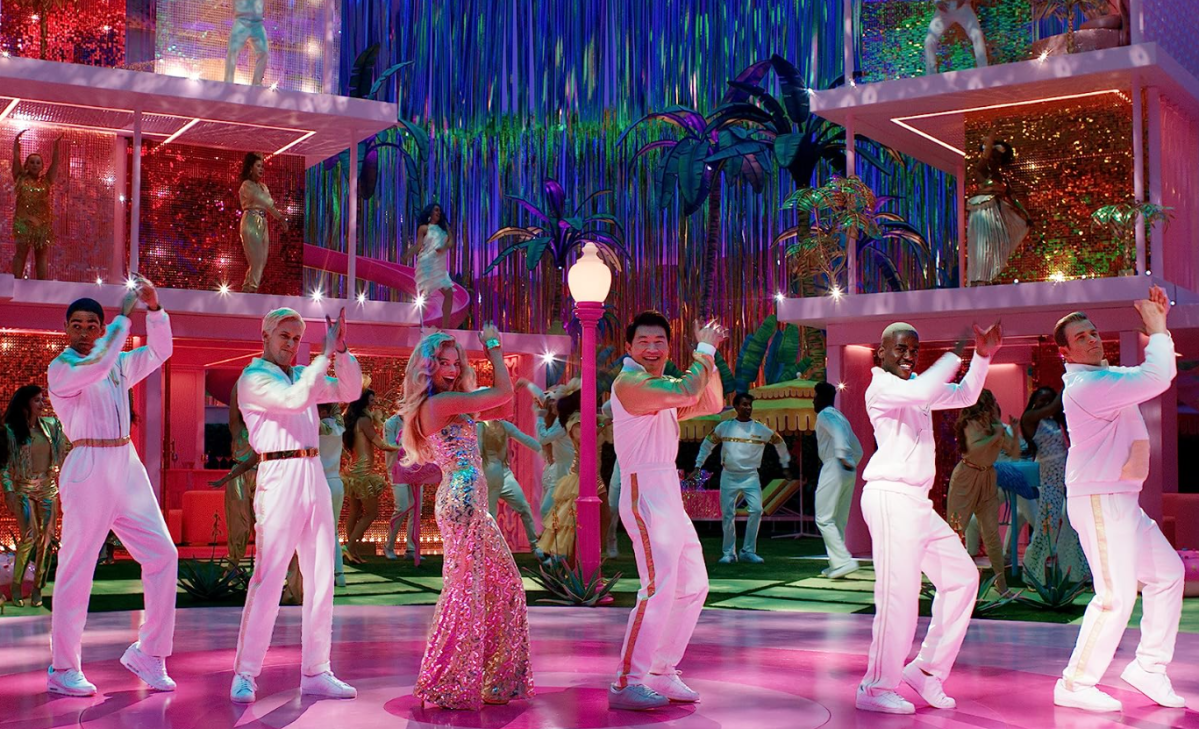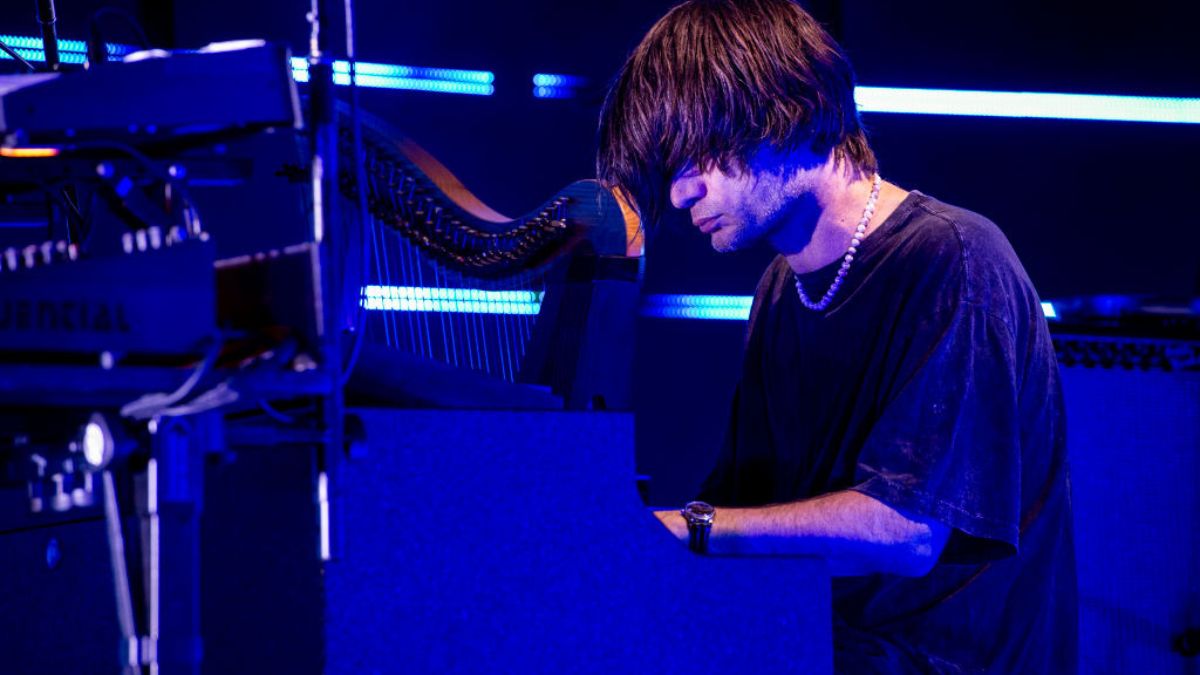Any notion that Greta Gerwig’s hotly-anticipated, hyper-marketed Barbie would devolve into a lionization of the shallow, girlboss feminism the doll is often associated with is dispelled a few minutes in. The narrator (Helen Mirren) jokingly pokes fun at the fact that in Barbie Land, where the opening act takes place, the titular residents truly believe their presence has brought about gender equality in the real world, mirroring the attitudes of folks who claim women utilizing the most destructive weapons of capitalism to enrich themselves are actually heroes.
Barbie maintains this comedic self-awareness brilliantly throughout, without ever winking too hard at viewers. There’s a sense Gerwig really did manage to wrestle a lot of creative control from Mattel, which is notoriously uptight about its IP, because at points she is brutal about the famous doll’s complex legacy. You can also tell this is a film made by people who really, genuinely cared about the project, whether it be because they grew up with the doll, or just because of its immense cultural presence. Yet, despite this, being packed with solid laughs, fun references, fantastic performances from an ensemble cast, and some stunning visuals, Barbie is simply too unfocused to hit the high notes it should.
The movie begins with a 2001 homage, before we’re catapulted into the world of stereotypical Barbie (Margot Robbie), living a perfect life with her chiselled and slavishly devoted kind-of-boyfriend Ken (Ryan Gosling), and a slew of other Barbies. However, cracks start to appear in the flawless, plastic facade, and the reality of death and – even more horrifyingly, cellulite – soon hit her. In an attempt to right these wrongs, she heads to the real world (with Ken tagging along), to find the sad little girl who’s playing with her and cheer her up with some classic Barbie magic, thus returning everything to its perfect state.
What follows is Barbie and Ken discovering that the real world is very much not a nice place for women, and that maybe Barbie Land isn’t so great for Kens, either. Despite the newfound barrier of the patriarchy, Barbie manages to find the person who’s been filling her plastic head with thoughts of mortality. However, it’s no child, but a grown woman named Gloria (America Ferrera) with a Gen-Z tween called Sasha (Ariana Greenblatt), the latter of whom is happy to tell Barbie just how negative an impact the doll has had on the self-esteem of countless girls and women (Mattel really did loosen their grip for this one).
Beyond its intriguing meta nature and the fact it’s hilarious there’s tonnes to admire about Barbie, including various elements of what Gerwig has done with the eponymous character as a representation of femininity. Her previous features have had women’s identity at their heart, and so does this one, although its absurd and fantastical setting has allowed her to emphasize certain points more.
The main thematic driving force, and the subject of a both funny and serious speech by Gloria at the climax, is that women all have deeply shared experiences, but are also unique and deserved to be treated as such. Even dolls that just represent the idea of women are held to too high a standard, put on pedestals but also degraded. The problem is, Barbie doesn’t focus enough on that central message through the medium of storytelling, instead outright telling us how things are. Add in the fact there are multiple strands of plot for Gerwig to weave together expertly, and it’s no surprise even someone as talented as her drops the yarn a few times.
With that all said, Barbie is generally a great, fun watch. Robbie’s performance is understated but deft, which is a surprising thing to say in a movie that is so bright and big. Gosling is an astoundingly good Ken, and his arc parallels Robbie’s in a satisfying way, giving us a more lighthearted take on the lessons she learns in the real world (as well as some great comedic moments). The mother-daughter relationship – something we know Gerwig loves digging into thanks to Lady Bird – follows a clear and satisfying path, albeit a little too quickly. But all of it together just feels underdeveloped, and hurried.
The storyline with the Mattel executives, while providing plenty of great gags, didn’t really have much of a point beyond giving Gerwig a chance to make (perfectly valid) comments on the various ways in which our society promotes misogyny. Barbie is a movie, though, not a university essay citing examples of things, and the lack of real resolution cheapened the value of the Mattel plot in the film. Additionally, many elements of what the filmmaker says through that storyline are mirrored in the more compelling (and relevant) Ken arc.
Because of Gerwig’s unashamed digs at the patriarchal nature of our society (and the fact we live in a hellscape where people genuinely think Andrew Tate is a hero), there will be criticisms of this film being anti-men. These are unfounded. One target will undoubtedly be the seemingly perfect nature of Barbie Land versus the violent, misogynistic horror of reality, but there is a scientific basis for this idea – just look up the differences between female-led bonobo societies and male-led chimpanzee ones.
However, there are sections where the subtle or intelligent criticisms are switched out for blunt, instructive dialogue, which doesn’t quite work in the way it does for some pieces of art that tackle societal bigotry, like the works of Weike Wang and Percival Everrett, the television series I May Destroy You, and even Gerwig’s Little Women.
Regardless of your thoughts on the political and cultural elements found within, taken on its own, Barbie is an enjoyable and occasionally illuminating watch — and maybe that’s all it needs to be, but you might be left wishing it really was everything.










Published: Jul 19, 2023 03:48 am